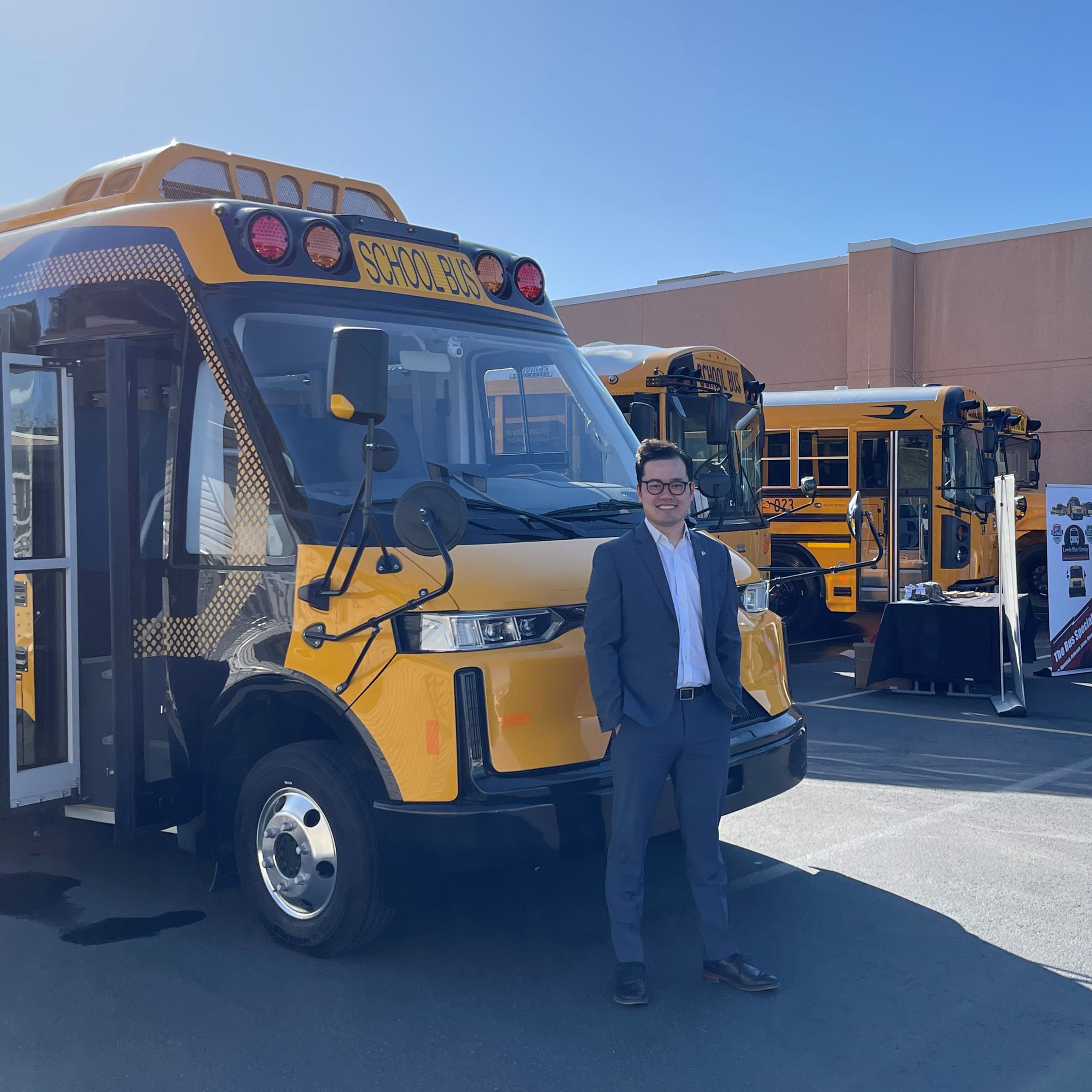YeChan Lim (BSEEE '16, MSEEE '18) uses his EEE degree and environmental politics and policy minor to make big impacts with the EPA
Across the United States today, over 25 million children will climb aboard an iconic big yellow school bus. School buses travel a collective annual total of four billion miles, consuming approximately 400 million gallons of diesel fuel and adding to the 30% of total US energy-related CO2 emissions that are produced from gasoline and diesel fuel use (as of 2022). YeChan Lim, EEE alumnus (BSEEE ’16, MSEEE ’18) and Technical Lead of the United States Environmental Protection Agency (EPA)'s Clean School Bus Program, has been working to improve this situation since the creation of the program in 2022. To date, the EPA has awarded nearly $2 billion to the cause, replacing 5,000 school buses at over 600 schools.

“I sincerely enjoy the work I do and the impact we make,” he says, “Working at the EPA allows me to effect meaningful change for our nation, the environment, and its people.”
YeChan and the rest of the Clean School Bus Program team are not only helping to reduce greenhouse gas emissions, but also directly impacting children's health. Children tend to be more susceptible to air contaminates found in diesel exhaust fumes. By transitioning to electric and low-emissions school buses, children can better avoid exposure and stay healthier.
Undertaking big projects with big impacts is what YeChan loves most about working at the EPA. In fact, he never plans on leaving. As he puts it, “I'm going to be a ‘lifer’ here.”
YeChan earned both his bachelor’s and master’s degrees from the EEE program. Additionally, he completed a minor in environmental politics and policy, providing him with a significant advantage in the public sector. The environmental politics and policy minor encompasses several courses including Comparative Environmental Policy, Global Green Politics, The Politics of Regulation, and Contemporary Political Problems. The curriculum is designed to enable students to understand and thrive amidst the nuances of environmental policy. YeChan advises students, “I can’t recommend the policy minor enough. It will set you apart in any job you apply for, particularly within the public sector and federal agencies.”
Beyond academics, YeChan made the most of extracurricular opportunities within EEE and Purdue. He participated in the Purdue Varsity Glee Club and engaged with various EEE student organizations and leadership roles, all while balancing his studies and research. These experiences helped him develop essential soft skills like effective communication, teamwork, and leadership.
YeChan emphasizes, “Communication is a vital skill for engineers. A large part of my job is communicating with external and internal stakeholders, helping them understand what we are doing and tailoring that message based on the audience. You could be the smartest person in the room, but if you don't have the skills to convey that knowledge clearly, it's going to be difficult for you to advance in your career.”
Six years after leaving Purdue’s campus, YeChan still has so many fond memories of his time here. His professors, projects, research, and friends are a foundation on which the rest of his life has been built. His message to current students is simple yet profound: “Enjoy your time. Coursework can get hectic, and homework is never fun, but Purdue and EEE offer a wealth of opportunities. Try to utilize and savor every minute.”
